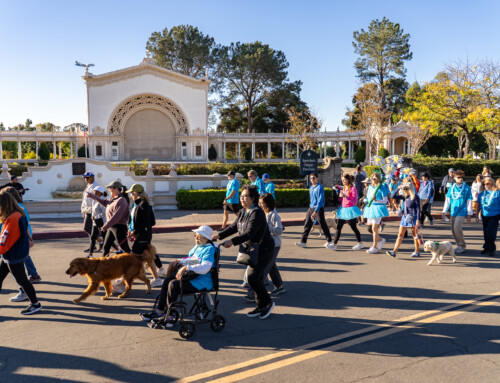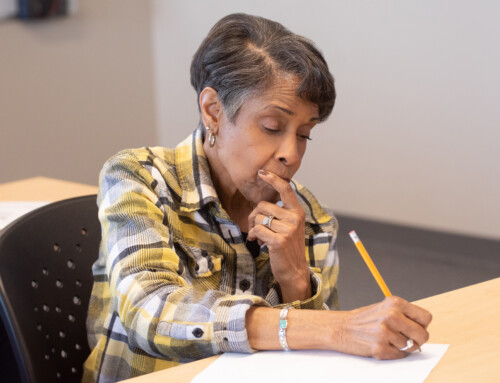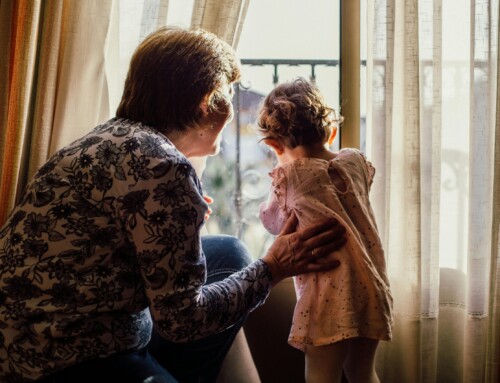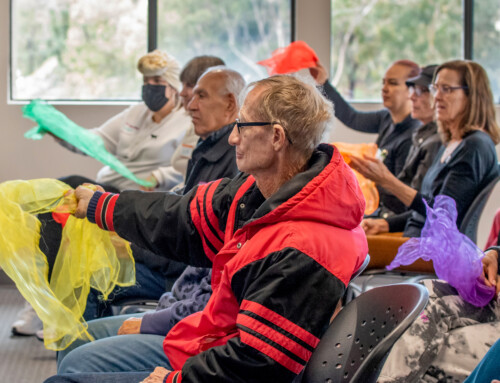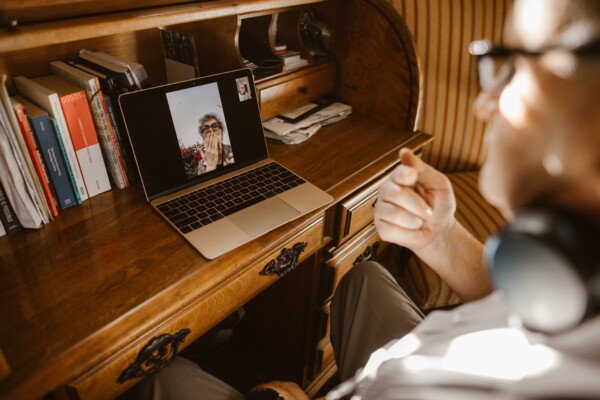
When we think of the term “care partner,” we often picture someone who physically helps a person with their daily needs. Though it looks different, caring for a person living with dementia from a distance is still an important role involving time, energy, and resources. We’ll discuss the challenges of caregiving from a distance, how to support the person living with dementia and their local care partners, and tips for staying connected.
Challenges of Caregiving from a Distance
Long distance care partners experience unique challenges in their role. For example, being limited to communication by phone, email, or texting can cause important details to be missed or misunderstood. Symptoms of the person’s disease, such as memory loss, disorientation, and changes in hearing may all impact the ability to converse with the person by phone. Coordinating with local care partners from a distance can also be a major hurdle, especially if any conflict or strain exists or if the long distance care partner has limited authority to intervene in matters of the person’s care.
On a personal level, many long distance care partners struggle with feelings of guilt over “not doing enough” or missing important events. Lack of knowledge of local resources as well as limited ability to travel can often fuel these feelings. Like local care partners, it is important for long distance care partners to engage in self-care and take time to rest and recharge to maintain their wellbeing.
Supporting Local Care Partners
Even from afar, long distance care partners can help local care partners in multiple ways. When offering support, it is important to ask what would be most helpful to the local care partner, while also acknowledging one’s own limitations. Here are some additional tips:
- Offer support in ways that align with individual strengths (e.g. handling bills if good with finances)
- Help the local care partner get a break by finding time to visit or arranging respite/in home care
- Seek out education and training to be able to share with the local care partner
How to find local community resources
Another important way to help is to identify local resources such as adult day programs, home safety assessments, legal and financial assistance, residential care options, and social activities like the ones we hold weekly. Here are some tips to find resources in the community of the person living with dementia:
- Connect with people in the person’s own network such as members of their church or civic organization. Advisors like doctors, accountants, and lawyers may also have recommendations
- Check if the community has a resource center for dementia like Alzheimer’s San Diego
- Contact local senior centers and libraries
Staying Connected
Keeping in touch and staying up to date on the life of the person living with dementia is not always an easy task, but it is essential for long distance care partners to perform their role.
Information needs for long distance care partners
To be able to help manage the person’s care, long distance care partners need access to information like appointments and health status, financials, household activity, and general well-being. Using a family calendar or dedicated website for sharing updates can help keep everyone in the loop. Arranging for powers of attorney, HIPAA waivers, bank account signatory, and other documents is also important to access needed information. Consult with an elder law attorney to learn more.
Tips for planning visits
Visits are an important way to stay involved. Here are some tips to help make visits go smoothly:
- Ask the local care partner what they need and if there is anything new to be prepared for
- Set realistic goals about what can be accomplished during the visit
- Remember to enjoy quality time with the person along with managing care tasks
Technology resources
Though visits are valuable, they are not always feasible. Luckily, modern technology can fill in the gaps. Here are some examples of products and devices that can help manage the person’s care from afar:
- Emergency response systems
- Automated check-in calls
- Wearable activity trackers
- Automated pill dispensers
- Health monitors
- Fall detectors
- Communication assistance tools
Check out our free support groups, education classes, social activities, & more. You may also call our office at 858.492.4400 to speak with one of our Clinical Care Coaches (Spanish speakers available).
RECOMMENDED: Program Spotlight: VITALZ (Volunteers in Touch)

